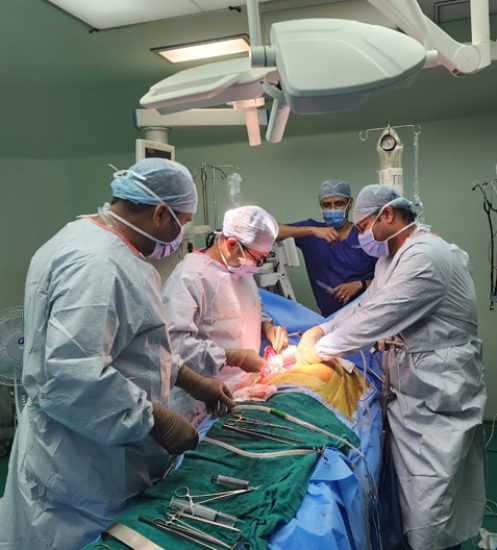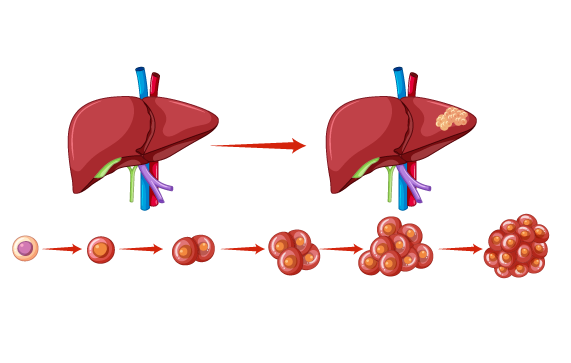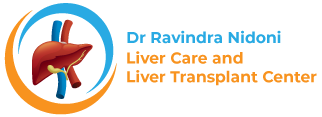Liver Cancer (HCC)

Secondary liver cancer is a type of cancer that originates elsewhere in the body and spreads to the liver. It is also known as metastatic liver cancer.
Understand the Risks and Symptoms of Liver Cancer
Learn about the dangers and recognize the signs of Liver Cancer. Get screened and consult your doctor today to explore alternative treatments for Liver Cancer.
Cancer is the growth and spread of unhealthy cells in the body.
Primary liver cancer is a type of cancer that starts in the liver. It is also called Hepatoma or Hepatocellular Carcinoma(HCC).Hepatocellular carcinoma is the most common type of cancer among adults in the USA. Most people with hepatocellular carcinoma have many small clusters of cancer cells called nodules. Some people have only one tumor that grows larger over time. Learn more about rare forms of liver cancer.

Important Facts to Know
Liver disease progresses through stages. Some people with liver disease may develop cirrhosis (scarring) of the liver, which increases the risk of liver cancer.
Liver cancer is among the top ten causes of death in the USA for all races, ethnicities, and genders. Approximately 34,000 Americans die from it each year.
Liver cancer may have genetic or hereditary causes beyond our control. However, we can reduce the risk of developing liver cancer by being aware of the most common causes.
Risk Factors: A risk factor is something that increases the likelihood of developing a disease. Certain conditions or behaviors can raise the chances of developing liver cancer. Having cirrhosis is a risk factor for developing hepatocellular carcinoma (primary liver cancer). Cirrhosis is severe scarring of the liver caused by long-term damage, not just excessive alcohol use.
There are treatment options for liver cancer based on the type and stage of cancer, as well as other medical test results.
Long-term (chronic) hepatitis B and hepatitis C infections are linked to hepatocellular carcinoma or liver cancer because they often lead to cirrhosis if left undiagnosed or untreated. Hepatitis B can cause liver cancer without cirrhosis.
Once symptoms occur, they may include
Feeling tired Bloating or feeling full Pain on the right side of the upper abdomen, back, or shoulder Nausea Loss of appetite Weight loss Weakness Fever Yellowing of the skin and eyes (jaundice)
Diagnosis
Liver cancer is diagnosed through a physical examination and specialized medical tests. Diagnosis may involve ultrasounds, CT scans, MRI, and sometimes a liver biopsy (removal of a small piece of liver tissue). Genetic testing of the cancer may also be conducted to determine the best treatment approach.
Treatment
Liver cancer treatment depends on factors such as the liver's condition, the extent of cirrhosis, tumor size, location, and number, as well as the overall health of the patient.
Questions to Ask Your Doctor: If you have been diagnosed with hepatocellular carcinoma or liver cancer, it's natural to feel shocked and scared. Here are some questions you can ask your doctor during your appointment to gather more information:
If the cancer has not spread and the rest of the liver is healthy, treatment options may include
Liver transplant Partial hepatectomy or segmentectomy (surgery to remove part of the liver or a tumor) Radiofrequency ablation (destruction of cancer cells by heating using a thin probe inserted through the skin) If the cancer is contained within the liver but not responsive to the above treatments, other options may include: Blocking blood supply to the tumor through embolization or chemoembolization procedures Radiation therapy (using high-energy x-rays) If the cancer has spread outside the liver or is unresponsive to previous treatments, doctors may recommend:
Oral anti-cancer medications Immunotherapy (to boost the immune system) Participation in clinical trials (to test new medications) While a successful liver transplant can cure liver cancer, it’s only suitable for a small percentage of patients. Surgical resections have a success rate of about one in three cases. However, promising new treatments are being researched to extend the lives of people with liver cancer.

How many tumors do I have, and what is their size? Do I need additional tests such as biopsy, imaging scans, or PET scans? Has the cancer spread outside the liver? What treatment options are available to me? Will I need to be hospitalized for treatments? How can I alleviate cancer symptoms? How effective is the chosen treatment for liver cancer? What are the potential side effects? Can the tumors return after treatment? Would I benefit from participating in clinical trials? Where can I find more information? Is liver transplant an option for me? Should I make any dietary changes before or during treatment? What should I eat or avoid? Are there any supplements or medications I should take or avoid?










